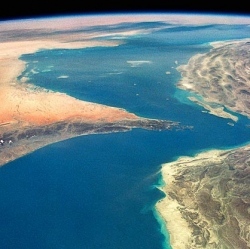
Australia is to be a launch partner on the UK’s innovative new small radar satellite, NovaSAR. The spacecraft, which will track shipping and forestry change from orbit, is due to launch on an Indian rocket early next year. Australia’s main research organisation, CSIRO, has signed a 10% share in NovaSAR’s data.
The deal comes on the heels of an announcement that the country will soon get a national space agency. This future body will no doubt look to secure many more such collaborations, to enable Australian scientists and entrepreneurs to exploit the latest Earth observation information.
NovaSAR (PDF) has been built by Surrey Satellite Technology Limited in Guildford, in southern England, with the aid of a £21m UK government grant.
The 3m-long platform, which looks like a cheese-grater, is regarded as an "operational demonstrator" – that is to say, it will showcase a capability but with the intention that its data is put to good use to develop services. Radar works at wavelengths that allow it to pierce cloud to see the surface of the Earth in all weathers, and in darkness.
NovaSAR will use this vision to make forestry assessments in the tropics (frequent cloud) and at high latitude (poor light conditions); to support disaster relief (radar is very good at sensing flood water); and to monitor shipping routes.
This third application is enhanced by the addition of an Automatic Identification System (AIS) sensor onboard the satellite.
All ships over 300 gross tonnes are required to fit AIS transponders that broadcast details about their voyage.
Spotting from orbit those vessels that have their AIS disabled is often a sign of illegal actors, such as smugglers or trawlers attempting to net fish in no-take zones.
Radar plus AIS is seen as something of a killer application in maritime policing.
Australia’s Commonwealth Scientific and Industrial Research Organisation (CSIRO) will get a 10% share of the tasking and data-acquisition capabilities of NovaSAR.
Dr Dave Williams from CSIRO said the deal represented a significant investment in Australia’s space capability.
"The aim is to manage the NovaSAR satellite as a natural extension of the significant role CSIRO already plays in managing a range of national facilities, on behalf of the Australian community of scientists and for the benefit of the nation.
"Because we’ll be able to direct the satellite’s activity, it provides significant opportunities to support a wide range of existing research, further develop Australia’s earth observation data analytics expertise, and create new opportunities in the field of remote sensing."
